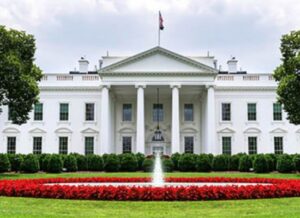
Restaurants have struggled mightily during the COVID-19 pandemic. Thankfully, they’re specifically targeted for a new tax relief measure found in the massive Consolidated Appropriations Act (CAA), which became law on December 27, 2020. The new provision creates a temporary but meaningful tax incentive to spend more on business-related food and beverage costs.
Preexisting tax breaks for certain food and beverage and entertainment costs are available in other limited circumstances. Here are the details.
Unfavorable Treatment under Tax Cuts and Jobs Act
The Tax Cuts and Jobs Act (TCJA) permanently eliminated deductions for most business-related entertainment expenses paid or incurred after 2017. For example, you can no longer deduct any of the cost of taking clients out for a round of golf, to the theater or for a football game.
Before the IRS got around to issuing regulations, it was unclear what the impact of this general disallowance of deductions for entertainment would be on the deductibility of business-related meals.
Temporary Changes Under the CAA (Business Meals) – and Then the April 8 Clarification
A somewhat-controversial change in the CAA allows taxpayers to deduct 100% of the cost of business-related food and beverage expenses incurred at restaurants in 2021 and 2022.
In previous years, deductions for business meals at restaurants were limited to only 50% of the cost. While some have decried the CAA change as an unwarranted tax break for those who indulge in the proverbial three-martini lunch, it’s intended to help restaurants survive the COVID-19 economic fallout. And, with the current COVID-related operating restrictions, restaurants need all the help they can get.
Under the new law, for 2021 and 2022, business meals provided by restaurants are 100% deductible, subject to the considerations identified in preexisting IRS regulations. The IRS provided important guidance on Thursday, April 8 to clarify which establishments are included under the CAA’s definition. Purchases from restaurants from which meals are available for immediate consumption are eligible. Meals purchased from an establishment that sells primarily prepackaged foods or beverages not requiring immediate consumption (such as grocery stores) are not eligible. Also not included are meal purchases from eating facilities on the business’ premises used to provide meals to employees or meals from an employer-operated eating facility treated as a de minimis fringe benefit.
Preexisting Recent IRS Regulations
In October 2020, the IRS issued final regulations which clarified that taxpayers could still deduct 50% of business-related meal expenses under the TCJA. These regs were written before the CAA change that allows 100% deductions for business-related restaurant meals provided in 2021 and 2022. So, the regs will need to be updated, but they still provide some useful guidance on the following issues:
Definition of food and beverage costs. Food or beverages means all food and beverage items, regardless of whether they are characterized as meals, snacks, or other types of food and beverages. Food or beverage costs mean the full cost of food or beverages, including any delivery fees, tips and sales tax.
Treatment of food and beverages provided with entertainment. For purposes of the general disallowance rule for entertainment expenses, the term “entertainment” doesn’t include food or beverages unless:
• The food or beverages are provided at or during an entertainment activity (such as a sporting event), and
• The costs of the food or beverages aren’t separately stated.
Specifically, to be deductible, amounts paid for food and beverages provided at or during an entertainment activity must be:
• Purchased separately from the entertainment, or
• Stated separately on a bill, invoice or receipt that reflects the venue’s usual selling price for such items if they were purchased separately from the entertainment or the approximate reasonable value of the items.
Otherwise, the taxpayer can’t attempt to allocate costs between the entertainment and the food or beverages. The entire cost is treated as a nondeductible entertainment expense.
Treatment of business meals. Under the final regs, no deduction is allowed for business-related food or beverages unless:
• The expense isn’t lavish or extravagant under the circumstances,
• The taxpayer or an employee of the taxpayer is present at the furnishing of the food or beverages, and
• The food or beverages are provided to the taxpayer or a business associate.
• A business associate means a person with whom the taxpayer could reasonably expect to engage or deal with in the active conduct of the taxpayer’s business such as a customer, client, supplier, employee, agent, partner or professional advisor — whether established or prospective.
Treatment of meals while traveling on business. Under the final regs, the long-standing rules for substantiating meal expenses still applies and they can be deductible.
The regs also reiterate the long-standing rule that no deductions are allowed for meal expenses incurred for spouses, dependents or other individuals accompanying the taxpayer on business travel (or accompanying an officer or employee of the taxpayer on business travel), unless the expenses would otherwise be deductible by the spouse, dependent or other individual. For example, meal expenses for the taxpayer’s spouse would be deductible if the spouse works in the taxpayer’s unincorporated business and accompanies the taxpayer for business reasons.
There are several ways your business can deduct 100% of the cost of meals, other food and beverages, and even entertainment. Contact Senior Vice President Holly Caporale via our online contact form if you have questions or need guidance.
Councilor, Buchanan & Mitchell (CBM) is a professional services firm delivering tax, accounting and business advisory expertise throughout the Mid-Atlantic region from offices in Bethesda, MD and Washington, DC.
© 2021




